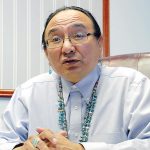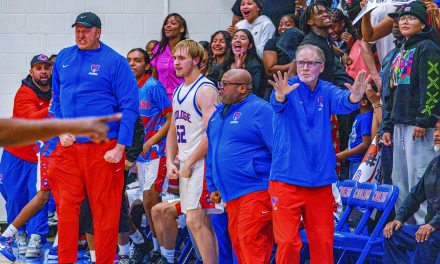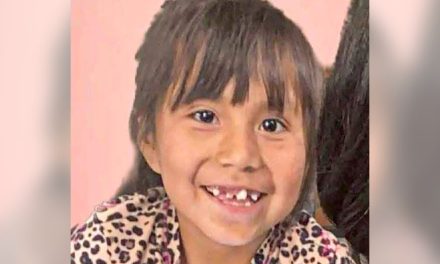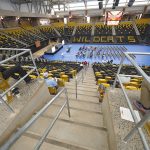
Native News | Maine House advances plan to give state tribes sovereignty
AUGUSTA, Maine (AP)
The Maine House voted April 14 to give the state’s tribes the same rights enjoyed by Native Americans elsewhere across the country, a first step in an effort to uphold the tribes’ sovereignty.
The 81-55 tally marked the first legislative vote in the process of restoring rights forfeited in the Maine Indian Claims Settlement Act of 1980, which made the tribes subject to state law.
The vote, which tribal leaders watched from the gallery, followed emotional testimony from supporters who said the change was long overdue.
“The time to change this is now, for the Wabanaki tribes rightly deserve and should enjoy the same rights, privileges, power and immunities as other federally recognized tribes,” said Rep. Rena Newell, a nonvoting Passamaquoddy representative to the Legislature.
Some critics, however, pointed out that there could be unforeseen difficulties from the change. As it stands, tribal reservations in Maine are treated like municipalities under state law.
The historic vote came hours after the Senate gave final approval to a separate bill allowing the Passamaquoddy Tribe at Pleasant Point to regulate its own drinking water.
Democratic Gov. Janet Mills has concerns about parts of the bill, including conflicts between jurisdictions.
Rep. Laurel Libby, R-Auburn, said she was concerned the tribal lands in Maine are not contiguous, and that there could be conflicts over environmental rules in towns across the state. Future lawmakers will be bound by any mistakes in the new language, she said.
“There are serious unknown consequences on natural resources and wildlife management, land and water access, and liability,” she said.
Farms, fish on dry California-Oregon border see scant water
PORTLAND, Ore. (AP) — Farms that rely on irrigation from a depleted, federally managed lake on the California-Oregon border, along with a Native American tribe fighting to protect fragile salmon, will both receive extremely limited amounts of water this summer as a historic drought and record-low reservoir levels drag on in the U.S. West.
More than 1,000 farmers and ranchers who draw water from a 257-mile-long river that flows from the Upper Klamath Lake to the Pacific Ocean will have access to roughly one-seventh the amount they could get in a wetter year, a federal agency announced Monday.
Downstream salmon will receive about half the water they’d get if the reservoir was full.
It’s the third year in a row that severe drought has impacted farmers, fish and tribes in a region where there’s not enough water to satisfy competing demands.
Last year, no water at all flowed through the Klamath Reclamation Project’s main irrigation canal, and thousands of downstream juvenile salmon died without reservoir releases to support the Klamath River’s health.
The U.S. Bureau of Reclamation, which manages the irrigation project, announced $15 million in relief for affected farmers and $5 million for Native American tribes as a result of its decision and warned farmers not to take water beyond what was ordered or risk further irrigation reductions and legal action.
The agency decides the allocations each year, taking into account court rulings that require certain lake levels to support two federally endangered fish species.
Park renamed to honor Native American village
KLAMATH FALLS, Ore. (AP) — City councilors in Klamath Falls have voted unanimously to rename Kit Carson Park as Eulalona Park.
Eulalona was the Native American village that sat near the park site before present-day Klamath Falls.
The city began considering whether to rename the park after a Klamath Falls equity task force recommended a name change last year, Jefferson Public Radio reported.
Kit Carson was a 19th-century frontiersman and was known for his involvement in massacres of local Native American tribes.
“I just think it’s appropriate to, in light of the history of Kit Carson, to honor our Native people and to honor them with a park,” City Councilor Phil Studenberg said.
The Parks Advisory Board solicited suggestions for new park names from the community using an online survey. Bellon said they received nearly 400 responses.
In addition to Eulalona, final name options included Sunshine Park, Discovery Park, and Yadenite Park, named after a yellowish rock that is found in the area.
In a recent community survey, almost 60% of respondents favored renaming the park, according to the city.
No one spoke during the public comment period.
Pope apologizes for residential schools, boarding school coalition says it is first step
MINNEAPOLIS – On April 1, Pope Francis issued a historic apology to an audience of Indigenous people from Canada, speaking at Vatican City.
He said he was asking for God’s forgiveness for the Catholic Church’s role in running a system of Canadian boarding schools where Native children were, in many cases, taken from their homes and abused.
The pope said he felt “sorrow and shame” for Indigenous people’s treatment in Canada.
The papal apology comes months after the remains of hundreds of children were found on the grounds of former residential schools in Canada.
Canada’s Truth and Reconciliation Commission have said the forced assimilation and treatment of Indigenous people in the schools amounted to cultural genocide. The commission has documented thousands of Indigenous children who died at these schools.
The National Native American Boarding School Healing Coalition said it stands in solidarity with the First Nations, Métis, and Inuit. They were in Rome two weeks ago to speak about the horrors of Canada’s residential school system.
“The Roman Catholic Church was a perpetrator of the systematic cultural genocide committed in both Canada and the United States, as well as around the world,” the coalition said.
“For those who had sought this apology, we join you in recognizing this (historical) moment that is so long overdue,” the coalition said.
The coalition said this was just a first step. An apology alone will not rectify the harms perpetrated on Native people through the residential and boarding school systems in Canada and the United States.
The Catholic Church must hear the delegates’ requests, the coalition said, including Pope Francis going to Canada to apologize to survivors and their families, repatriation of artifacts in the collections of Vatican Museums, and opening the Vatican archives for researchers to search for records related to residential schools.
The delegates also asked the pope to revoke a papal bull from 1493, which led to the Doctrine of Discovery and the theft of Indigenous lands worldwide.
“We believe the Roman Catholic Church and other religious denominations involved in operating these assimilative institutions must now turn to the atrocities committed in the United States in its own Indian boarding school policy era,” the coalition said.
The coalition also asked religious institutions to endorse a bill currently in Congress to establish a “Truth and Healing Commission on Indian Boarding School Policies in the U.S.” (S. 2907 and H.R. 5444).
Boarding school coalition welcomes new staff
MINNEAPOLIS – The National Native American Boarding School Healing Coalition has announced the hiring of four staffers to help advance the work for truth, justice and healing from Indian boarding schools.
Following the recent appointment of Deborah Parker, tsicyaltsa, Tulalip Tribes, to chief executive officer, and Samuel Torres, Mexica/Nahua, to deputy chief executive officer, the coalitions new executive leadership is eager to expand reach and depth.
Kenrick Escalanti, A’máy Tádits, a Quechan citizen, is the coalition’s new creative director. Lacey Kinnart, Mukwa Ode Quay (Bear Hearted Woman), Sault Ste. Marie Tribe of Ojibwe, is program and operations coordinator. Theresa Sheldon, Tulalip Tribes, is director of policy and advocacy.
Deidre Whiteman, Meskwaki/Dakota/Ojibwe/Hidatsa, is director of research and education
Deborah Parker, Tulalip Tribes, CEO of the coalition, said, “These social justice warriors all come to (the coalition) with a heart and spirit for boarding school healing. Our growing team has immense talents, and we are eager to serve all of our Indigenous relatives during this crucial time for seeking truth and justice.”
NCAI to hold in-person conference in June
WASHINGTON – For the first time since the COVID-19 pandemic began, the National Congress of American Indians is holding an in-person conference June 12 to 16, which will take place in Anchorage, Alaska, with the theme “Thinking Beyond Self-Determination.”
Tribal leaders, NCAI members, Native youth, and partners from across Indian Country will gather to embark upon a new era of Nation-to-Nation engagement, which will include: proactive strategy development, advocacy, and much more.
Information: ncai.org
Desert Diamond Casinos hosts grand opening of Tucson sportsbook
TUCSON – The Tohono O’odham’s Desert Diamond Casinos & Entertainment held a grand opening recently for its newly remodeled Sportsbook & Bar at Nogales Highway.
The event featured a free autograph signing session by retired NFL players.
Following the soft opening of the Tucson sportsbook in February, a full-scale sports bar was opened to allow guests to watch games on big-screen TVs and bet on their favorite teams.
The sportsbook counter accepts bets from 10 a.m. to 10 p.m. each day, and sports wagering digital kiosks are available 24/7.
Treena Parvello, director of Government & Public Relations for the Tohono O’odham Gaming Enterprise, said, “As a locally operated sportsbook, we’re proud of the personalized service we offer our guests, and the new sports bar gives us even more opportunities to impress!”
Desert Diamond Casinos & Entertainment operates sportsbooks at its Tucson, Sahuarita, and West Valley properties.
Desert Diamond is owned and operated by the Tohono O’odham Gaming Enterprise, the Tohono O’odham Nation enterprise.







 Highway 264,
Highway 264, I-40, WB @ Winslow
I-40, WB @ Winslow